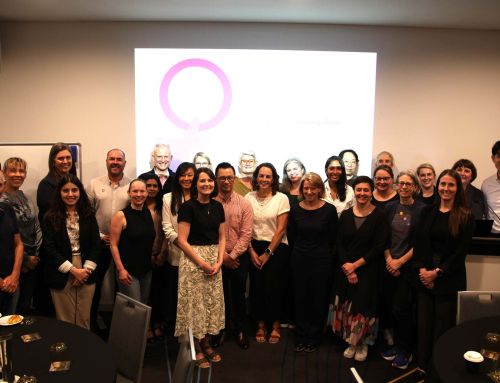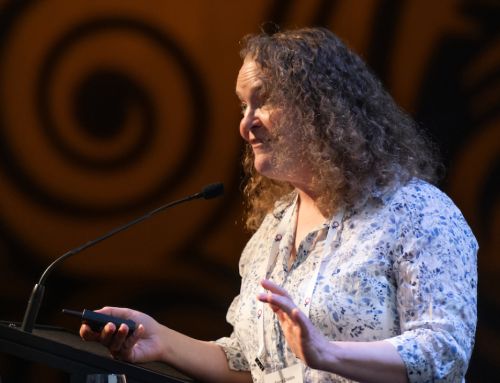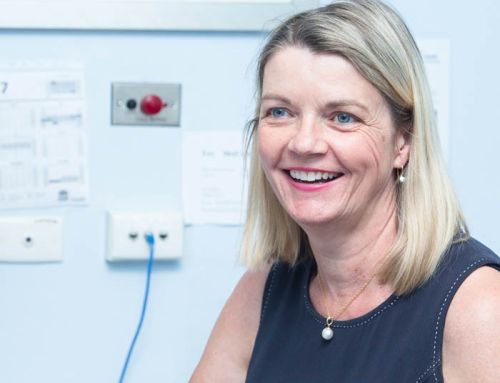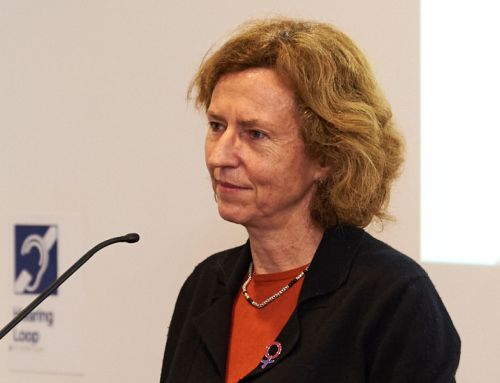As part of ANZGOG’s #GynaeCancerMatters campaign for Gynaecological Cancer Awareness Month, we are pleased to feature an insightful interview with Associate Professor Alison Davis.
Assoc Prof Alison Davis, Medical Oncologist (ACT)

With over 20 years of experience as a Medical Oncologist specialising in gynaecological cancers, Assoc Prof Davis shares her thoughts on the different segments required to improve outcomes for everyone with a lived experience of gynaecological cancer. As the immediate past Chair of ANZGOG’s Research Advisory Committee and a current ANZGOG Director, her dedication to research and holistic patient care underscores the vital work being done by ANZGOG to advance gynaecological cancer research.
Why does gynaecological cancer and/or gynaecological cancer research matter to you?
“I have been working as a medical oncologist with a subspeciality interest in gynaecological cancer for over 20 years. I am very committed to trying to improve the outcomes and experience of the women I care for, as well as all women with these diseases, and truly believe that research is the only way to move forward.”

ANZGOG 2024 ASM, Wellington
Why is it important for ANZGOG to conduct research that looks at the whole patient journey?
“Although it is paramount that we do research that aims to find new treatments that improve the survival outcomes of our patients, it is also extremely important that we strive to optimise their care and experience throughout the entire disease trajectory. Therefore, it is very important that we conduct research that aims to improve quality of life, minimise the negative impacts of treatment such as treatment toxicities and better understand the financial and time burdens involved in treating women with gynaecological cancers so that strategies can be developed to minimise these.
We also need to continue to explore the wide-ranging psychological impacts such as depression/anxiety and fear of recurrence that a diagnosis of a gynaecological cancer causes so we can minimise or modify these. I also have a research interest in optimising the end-of-life experience, which requires at first an understanding of the patient perspective and areas of need before interventions can be explored. This is the aim of the currently accruing PEACE study.”
Why is funding so important for research, particularly with quality of life studies?
“I think that doing “quality of life” research that aims to improve the experience of our patients is extremely important. Unfortunately, there is very limited funding available to do that type of research as it is less likely to compete successfully for government grant funding and will never have industry funding appeal. Hence, we need to find a funding source that understands the importance of this type of research and its potential impact and is willing to provide financial support to facilitate it.”
What makes ANZGOG’s approach to research uniquely beneficial for the patient experience?
“ANZGOG keeps the patient central to their research focus. As a research group we aim to perform high quality, meaningful and impactful research that strives to improve the outcomes of women with a gynaecological cancer. We take great care in the selection of our studies, always considering the relevance of the research to our patients and reflecting their diverse needs.
We endeavour to have people with “lived experience” on all our committees and also increasingly involved in research project development, to add their voice to all deliberations regarding what’s important for our research.”
Where are we going now with gynaecological cancer research? What lies ahead?
“It is an exciting time to be doing research into gynaecological cancer. There are new treatments being developed constantly, with our increasing understanding of the underlying molecular features, and drivers, of the different disease types. ANZGOG is also fortunate to have a very active scientific community involved in our organisation, who are performing pre-clinical and translational research to guide future clinical trial direction and increase our understanding of the underlying disease processes. We have also established widespread collaborations with scientists and clinicians around the world so are able to participate in a wide range of research projects.
We are also well positioned to strengthen our research into the QOL aspects discussed above and to collaborate nationally and internationally to drive this research focus.”
Driving Meaningful Progress in Research
As we continue our efforts at ANZGOG, we are reminded of the important role that dedicated members like Associate Professor Davis play in driving meaningful progress. Together, we can make a significant impact in the fight against gynaecological cancers, ensuring better outcomes for everyone with a lived experience.
#GynaeCancerMatters










